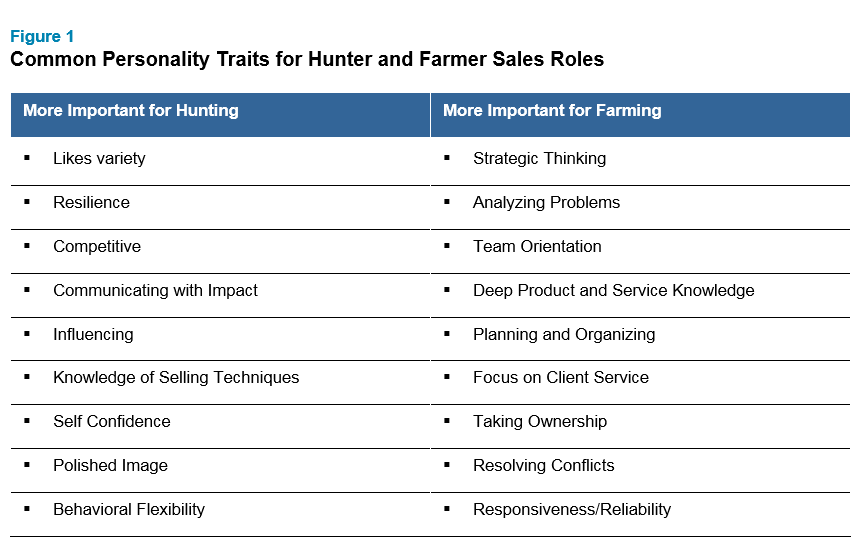With pressure on driving growth and rising sales force turnover, companies need to make smart hiring decisions and align candidates into the right sales jobs. Here’s a roadmap to get there.

Assessing the skills of your sales force should be a top priority for HR and sales leaders, but too often we see this process neglected with a focus on sales quotas and growth above matching the right talent with the right jobs.
The success of your sales organization is determined, first and foremost, by the quality of your sales reps. Evaluating future needs and current skills among your workforce is essential to keeping pace with changing customer demands, new business models and greater pressure to measure the ROI of sales. Yet, many companies have not invested in adding new resources to assess current and prospective talent. We come across numerous business leaders that still do not have a structured, scientific methodology to evaluate sales talent for capability and fit prior to hire.
Taking the time to develop an effective sales talent assessment process for your sales force is worth the investment as it often results in a more profitable and productive sales organization. In this article we’ll share some tips for developing an effective sales talent assessment process.
Matching Employee Attributes to Core Competencies of Sales Roles
Before you can use a sales talent assessment process effectively, you need to define the successful traits of a sales rep in your organization, which varies by job role. With millions of different personality combinations, how do we narrow down what is important for different sales roles specialties? First, you need to define the type of sales role you’re dealing with (e.g., hunter vs. farmer, direct vs. indirect, product vs. service or global vs. small). A personality matrix can match key personality attributes that typically set a person up for success within a given role. For example, a sales rep that enjoys cold calling, selling to new clients and doesn’t have experience (or enjoy) selling services vs. products will match up well to a hunting position that requires a high volume of selling.
Figure 1 shows a summary of key behavioral differences between a hunter and farmer type sales role.

Once you’ve established the key personality traits that workers need for success in a given role, it’s time to begin assessing your current and prospective employees. There are two key attributes that are essential for a successful salesperson: will and skill. Innovations over the past decade have helped managers drive and measure skill but assessing will at the time of hire remains a common challenge.
It’s not always obvious if a current or prospective employee is lacking in either skill or will (or even both). You can have a salesperson that meets quota because they have the skill, but a lack of will can lead to disengagement and a poor attitude that can spread to the rest of the team. That’s where using an effective talent assessment process comes into play. Sales organizations that use a sales talent assessment process can better understand where their team ranks on both the will and skill continuum and how to boost individual and team results.
Creating an Assessment Roadmap
Now that you’ve identified the traits and skills your employees have and the core competencies of your sales roles, you need to decide which type(s) of talent assessment tools will be useful for your organization. These assessments ensure new hires are the right fit and current employees are in the best roles to set them up for success.
There are a variety of assessment tools in the market that can help you target both the will and skill principles. Many organizations won’t need to use all of the assessment tools listed below but there is merit to each of them depending on your organization’s needs. Deciding what tool to use, or how many to use, will depend on the complexity and requirements of the targeted sales role. However, in our experience, the more comprehensive your assessment, the stronger sales results you’ll have in the long run.
Assessment tools for prospective hires that will gauge fit, solution-selling capability and appropriate job role:
- Personality Tests: Assess talent against identified personality aspects
- Career Directions Interview: Targeted interview exploring specific experiences and behaviors that align and support business success
- Role Play: Designed to simulate a solution-selling mentality or environment to learn how the candidate would approach and manage in a specific situation
Assessment tools for current employees that will consolidate findings to review with the employee and create a development plan:
- Personality Tests: Assess talent against identified personality aspects
- Multi-Rater: Solicit feedback from others in the organization (and not just direct managers) on capability and competency proficiency
- Performance Rating: Use the performance review process to assess talent against competencies, capabilities, and results delivered
Next Steps
An effective sales talent assessment process takes time and resources, but the payoffs are well worth it. We’ve worked with a number of clients with unique challenges and assisted them with developing sales talent assessments and solutions to meet their needs. Some of the benefits and outcomes you can expect are:
- Increase profitable revenue
- Assimilate new sales reps quicker, leading to better performance
- Improve candidate experience
- Create a data-driven candidate selection process
- Reduce time to hire for high-performing sales reps
- Reduce reliance on external recruiters who don’t know your business
To learn more about implementing a sales talent assessment process, or if you have other questions for our sales force effectiveness experts, please write to rewards-solutions@aon.com.
Related Articles